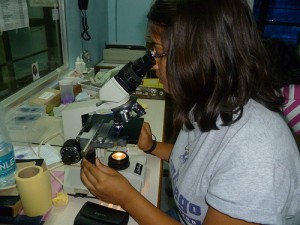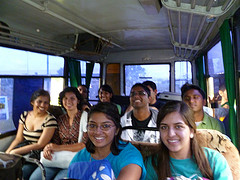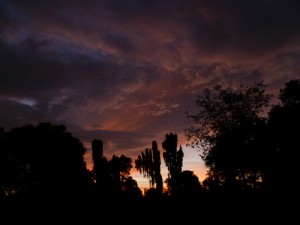Name, Age:Mugdha Golwalkar, 20
University, Major:UC San Diego, Human Biology
Region:Asia
Length of stay:Flexible
Type of Work:Medical/Public Health, Environment/Conservation , Education, Community Development, Arts, Childcare
Tell us about the nonprofit/social business you work for:
Project RISHI (Rural Indian Social and Healthcare Improvement) is a student-run organization that works during the year to raise funds for several sustainable projects, which we then carry out on a two-week trip to a leprosy colony in rural Maharastra, India. We have chapters at UC San Diego, UCLA, Berkeley, UC Irvine, UC Davis, and Northwestern University currently, but we’re always looking to expand! You can check out the website at www.projectrishi.org or specifically the UCSD chapter at www.facebook.com/groups/ucsdprojectrishi or follow us on Twitter @SDProjectRISHI for updates!
How did you find your position?
I heard about the first GBM through another organization on the UCSD campus called Sangam, and went from there!
What’s your typical day like?
When we visit, we have a fair amount of flexibility with the kinds of work we can help with there. I woke up every day at 5 am to wrap leprosy wounds in the hospital, and then spent most of the day either working on our projects, teaching dance lessons to disabled girls, teaching/helping out at the kindergarten and nursery, meeting with officials to assess the kind of project that the colony and neighboring villages still need that we could help with, and working in the pathology lab taking blood samples from patients and testing them for malaria. There are tons of opportunities if you take the initiative to ask about them.
What kind of people do you work with?
This colony does get other organizations that visit it, so you will be working with natives as well as international people most of the time. The majority of the administration speaks English, so language is not a big problem. The ages of people we worked with varied a lot depending on what each person chose get involved in in the community. Most people in the colony are minimally educated, but often knowledgable in the specific trades they have learned.
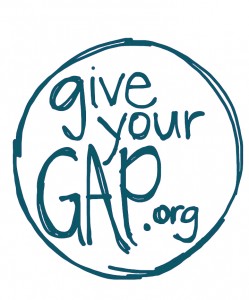 What are your living accommodations?
What are your living accommodations?
The colony has a guest house, which is generally a small room with several cots and an attached bathroom with western style toilet and eastern style baths (out of buckets). They aren’t the most comfortable accommodations, and sometimes there are bugs, but they do provide all the meals and the experience more than makes up for the adjustment. Internet is available at a central location, but it’s pretty slow and limited as this is an extremely rural area.
What do you do in your free time?
In my free time, we learned sign language form some of the locals, we went hiking and biking around the area. Sometimes we would go out into the main city to the market or to little local restaurants.
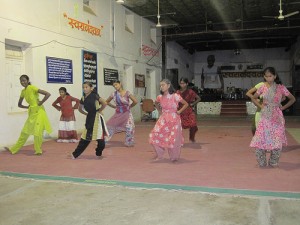
Most of these girls are either partially blind or deaf or were affected in some way by leprosy, but most of them already danced in the orchestra! Teaching them was an honor.
Share a favorite memory or story from your experience!
I got to teach Indian classical dance to girls affected by disabilities or leprosy! Honestly, they were so sweet, and they welcomed me with open arms and called me their “older sister” even though I was younger than some of them! They wanted us to teach them some western dance, but then spent the whole time making fun of me and my other friend who taught them when we tried to show them a latin dance to Shakira. They’re definitely friends I’m never going to forget, and they’re a big part of why I want to go back.
How are you financing your time?
I’m paying for the trip mainly out of my own funds, but with some help from my parents. The trip we take through Project RISHI generally costs $1500 and lasts for 2 weeks, but the leprosy colony we stay at would gladly welcome volunteers who want to stay longer, and it wouldn’t be too much more expensive.
What kind of special skills do you need to do your job?
None.
Do you feel like you are making a positive, critical impact on the global community?
Yes, I do. I feel like outside the trip, I’m spreading awareness about leprosy, which for a completely curable disease that 95% of the population is immune to, is IMMENSELY stigmatized. And on the trip itself, I can tell I’m really helping by volunteering around the community, because they really need the manpower.
How do you see this experience fitting into your long-term goals?
I have always wanted to work in public health, preferably in a rural community as a career, but my biggest problem was that I wasn’t sure if I could handle the conditions. I’m applying to Masters in Public Health programs right now, and I’m thinking about medical school afterward, so this experience really solidified my future goals and showed me that I can handle an experience like this, and probably can handle rural medicine, more long-term.
Do you have any advice for prospective gap-givers?
Take the initiative! Most communities you will work in are really open to having volunteers. Ask what you can do, and it doesn’t have to be overt work, like in a hospital or a school. Teaching the locals a new game or babysitting for someone for a night so they can have a night off can be just as rewarding!
Are you blogging about your work or travel? How can we stay in touch?
Our blog is at projectrishi.wordpress.com but as we didn’t have very stable internet there, our blogging was a little limited. Feel free to comment and ask questions though!
Would you be willing to take questions from potential Gappers?
Yes.

